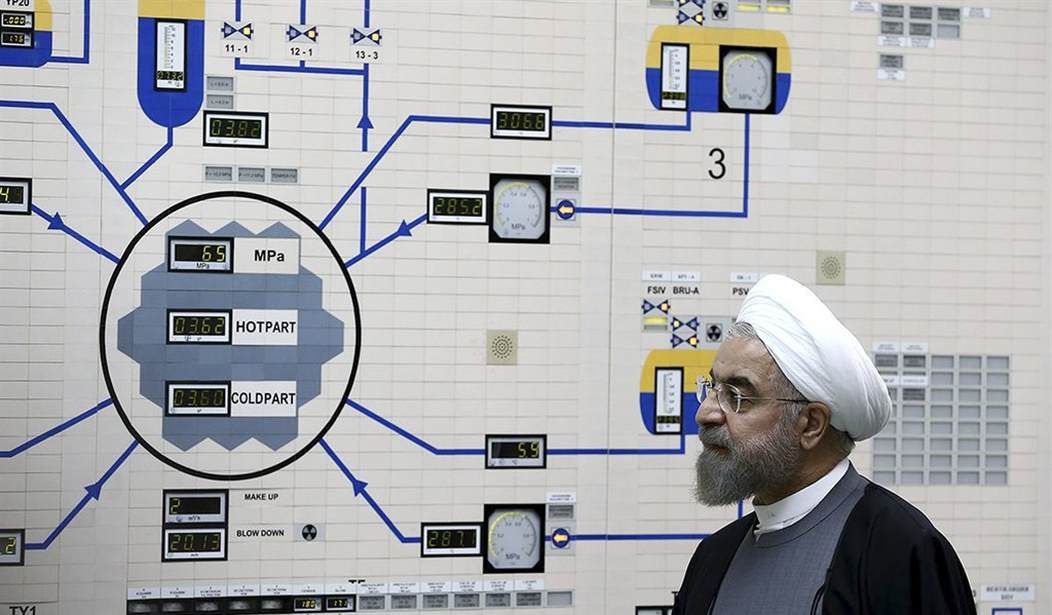Experienced negotiators know this: The side most willing to walk away from the table generally wins. The side that seems desperate for a deal loses. Yet President Obama is telling the entire world that he needs an agreement with Iran’s rulers more than they need an agreement with him.
Actually, it’s worse than that. Mr. Obama doesn’t want Congress to tee up new sanctions that would be imposed only if the Iranians refuse to offer serious compromises in the already twice-extended nuclear talks by June 30 — a deadline to which Iran, the United States and its negotiating partners have agreed. In response to such deadline-triggered sanctions, designed solely to enhance U.S. leverage, Mr. Obama contends, the Iranians will walk away from the table. And that, he warns, could lead to a war, which “Congress will have to own.”
One can only imagine how pleased Supreme Leader Ali Khamenei must be as he watches this debate unfold. How reassuring that there is so little controversy over his intransigence and the lies he has told for years regarding a nuclear weapons program he claims he doesn’t have, doesn’t need, doesn’t want — and won’t dismantle.
Many members of Congress, Democrats and Republicans alike, are experienced negotiators. They would like to see Mr. Obama bargain more strategically. They know a little recent history, too: Ayatollah Khamenei did not agree to send his envoys to meet with American diplomats because he seeks reconciliation with the Great Satan. It was tough sanctions that brought Iran to the table — in many cases congressional sanctions Mr. Obama agreed to impose only with immense reluctance.
Since then, substantial economic relief has been granted to the Iranians. As a result,Iran’s economy has moved from recession to recovery. In addition, under an interim agreement, the Joint Plan of Action, Iran has been allowed to continue to develop key aspects of its nuclear weapons program while “freezing” only those components that were already well advanced.
Recommended
All this has given Iran’s rulers the confidence to press their advantages. Last week, one day before talks resumed between Secretary of State John Kerry and Iranian Foreign Minister Mohammad Javad Zarif, they announced they would build two new light-water reactor nuclear plants. So much for stopping the expansion of Iran’s nuclear infrastructure.
Also last week, it was reported that Washington Post correspondent Jason Rezaian will face trial in a “Revolutionary Court.” The charges against him have not yet been made public and no attorney has been permitted to see him during the six months he has been in solitary confinement. That may not rise to the level of the Charlie Hebdo massacre, but the intent is the same: to curb freedom of the press.
Speaking of which: In this space last week, I suggested that the roots of the Charlie Hebdo massacre could be traced to Ayatollah Ruhollah Khomeini’s 1989 fatwa calling for the execution of a British novelist accused of having insulted Islam. It is revealing that Iranian security forces have prevented journalists in Tehran from demonstrating in solidarity with those gunned down in Paris. And, over the weekend, The New York Times reported that in 2010 French police found a document on the computer of Cherif Kouachi — who along with his brother carried out the attack — calling the fatwa “fully justified.”
I note this to highlight a point of strategic importance: the ideology of the Islamic Republic does not significantly differ from the ideologies of the Islamic State in Syria and Iraq, al Qaeda in the Arabian Peninsula, Boko Haram in Africa and dozens of other terrorist actors around the world.
I’d argue that it’s most accurate to call these ideologies Islamism. I’d argue that an Islamist is someone who believes in the imperative of Islamic supremacy and domination; that a single religion must rule — much as communists believe that a single class must rule and Nazis that a single race must rule. A subset of Islamism is jihadism. Jihadists believe that their goals can be achieved only through violence — not least violence directed against non-combatants. Sunni jihadism and Shia jihadism are two sides of the same coin. (The Shia side is just a bit more polished.)
What will be the consequences should jihadis of any stripe obtain nuclear weapons capability? That question keeps at least some members of Congress up at night. Among them: Democratic Sen. Robert Menendez of New York and Republican Sen. Mark Kirk of Illinois, who are putting the finishing touches on a bill to impose tougher sanctions if no final deal is concluded by June 30. A separate bill would give Congress an opportunity to approve or disapprove any such agreement.
At a closed-door meeting of Senate Democrats in Baltimore last Thursday, Mr. Obama not only repeated his warning that even deadline-triggered sanctions would lead to war, he charged that those congressmen favoring such a bill were doing so only to please “donors.”
Sources told The New York Times that Mr. Menendez “stood up and said he took ‘personal offense.’” He added that he has been working on this issue for years, has always “focused on the long-term implications,” and that it will be impossible to cobble together a new sanctions bill quickly next summer should Iran continue to stonewall.
Mr. Menendez, Mr. Kirk and many other members of Congress — whether there are enough of them to constitute a veto-proof majority is unclear — think that Mr. Obama’s all-carrots-and-few-sticks approach has not succeeded. They want to try a different strategy. They want to use the prospect of new, deadline-triggered sanctions to pressure Iran’s rulers to compromise sooner rather than later — because there will come a point when later is too late.

























Join the conversation as a VIP Member